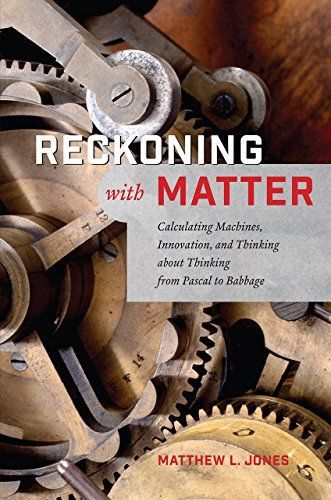
Reckoning with Matter Calculating Machines, Innovation, and Thinking about Thinking from Pascal to Babbage
"Reckoning with Matter" tells the story of early modern European calculating machines, from the early attempts of Blaise Pascal in the 1640s through Charles Babbage s efforts of the 1820s to 40s. All failed spectacularly. By exploring these failed technologies, Matthew L. Jones tracks diverse forms of technical life different social arrangements of practitioners, different legal conceptions of the ownership of work and ideas, and different philosophical conceptions of knowledge and skill. Philosophers, engineers, and craftspeople wrote about their distinctive competencies, about technical novelty, and about the best way to coordinate their efforts, and drawing on these remarkably well-preserved records, Jones reveals the concrete processes of imagining, elaborating, testing, and building key components for calculating machines. By highlighting the makers and their conceptions of invention right up to the instauration of modern patent regimes and the solidification of the concept of Romantic genius, Jones argues that these conceptions of creativity and of making are often more incisive and more honest than those still dominating our own legal, political, and aesthetic culture. Ultimately, "Reckoning with Matter "uses the fascinating history of calculating machines to explore major contingencies of European early modernity, from its economic history to its vision of creative activity itself."